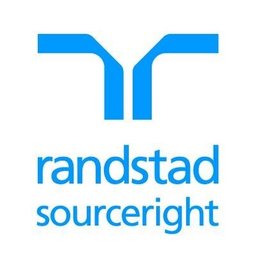FIND_THE_RIGHTJOB.
quality assurance auditor
Hyderabad, Pakistan
job details
Basic Responsibilities of an Auditor:
- Conduct audits to assess our adherence to applicable laws, regulations, industry standards, and internal policies.
- Review processes, procedures, and controls to ensure compliance and identify any potential violations or non-compliance issues.
- Contribute to the enhancement of compliance programs by identifying opportunities for process improvement.
Specific Responsibilities for the E2E Audit:
- Be familiar with and understand the QA audits that Wells Fargo has in place in order to complete audits.
- Be familiar with and understand how to navigate through Workday requisitions and candidate profiles.
- Be familiar with navigating through Modern Hire.
- Be familiar with and understand how to locate resources needed in the HRKC, S&A site, and our SOP. Additional audit resources have been created and will be shared as well.
- Once full training is complete, understand how to identify errors and keep detailed notes about findings.
- Ability to work within a collaborative worksheet within Teams.
Skills Required of an Auditor:
- Attention to detail - they need to identify potential errors, omissions, or discrepancies that may indicate non-compliance.
- Analytical skills - they should be able to gather and analyze data, detect patterns or anomalies, and draw conclusions based on the findings.
- Process / compliance knowledge - should have a strong understanding of relevant laws, regulations, industry standards, and internal policies applicable to Wells Fargo.
- Problem solving and communication - should be able propose practical solutions, and work collaboratively with stakeholders to implement corrective actions or process improvements. (They should be able to communicate with the recruiter and anyone else involved what the issue is and how to address it.)
- Ethical awareness - they should have a strong ethical mindset and a commitment to upholding the highest standards of integrity, along with maintaining strict confidentiality of sensitive information.
- Impartiality - they must maintain impartial to the errors captured during the audit; i.e., they should not make any changes to requisitions themselves and should always maintain record of any errors captured (regardless if they were fixed or not).
- Time management - they should be able to prioritize tasks, meet deadlines, and effectively manage their workload.
- Continuous learning and adaptability - auditors should be adaptable and flexible in dealing with changing compliance requirements and audit scope, along with staying informed of any changes in process.
Basic Responsibilities of an Auditor:
- Conduct audits to assess our adherence to applicable laws, regulations, industry standards, and internal policies.
- Review processes, procedures, and controls to ensure compliance and identify any potential violations or non-compliance issues.
- Contribute to the enhancement of compliance programs by identifying opportunities for process improvement.
Specific Responsibilities for the E2E Audit:
- Be familiar with and understand the QA audits that Wells Fargo has in place in order to complete audits.
- Be familiar with and understand how to navigate through Workday requisitions and candidate profiles.
- Be familiar with navigating through Modern Hire.
- Be familiar with and understand how to locate resources needed in the HRKC, S&A site, and our SOP. Additional audit resources have been created and will be shared as well.
- Once full training is complete, understand how to identify errors and keep detailed notes about findings.
- Ability to work within a collaborative worksheet within Teams.
Skills Required of an Auditor:
- Attention to detail - they need to identify potential errors, omissions, or discrepancies that may indicate non-compliance.
- Analytical skills - they should be able to gather and analyze data, detect patterns or anomalies, and draw conclusions based on the findings.
- Process / compliance knowledge - should have a strong understanding of relevant laws, regulations, industry standards, and internal policies applicable to Wells Fargo.
- Problem solving and communication - should be able propose practical solutions, and work collaboratively with stakeholders to implement corrective actions or process improvements. (They should be able to communicate with the recruiter and anyone else involved what the issue is and how to address it.)
- Ethical awareness - they should have a strong ethical mindset and a commitment to upholding the highest standards of integrity, along with maintaining strict confidentiality of sensitive information.
- Impartiality - they must maintain impartial to the errors captured during the audit; i.e., they should not make any changes to requisitions themselves and should always maintain record of any errors captured (regardless if they were fixed or not).
- Time management - they should be able to prioritize tasks, meet deadlines, and effectively manage their workload.
- Continuous learning and adaptability - auditors should be adaptable and flexible in dealing with changing compliance requirements and audit scope, along with staying informed of any changes in process.
share this job.
Similar jobs
SQA Analyst
Contour Software
Islamabad, Pakistan
2 days ago
Quality Assurance/Tester
Ryan, LLC
Hyderabad, Pakistan
2 days ago
Quality Analyst/Specialist - Serialization
Opella
Hyderabad, Pakistan
2 days ago
Assurance Senior Financial Consultant
EisnerAmper
Hyderabad, Pakistan
2 days ago
Assurance Financial Consultant
EisnerAmper
Hyderabad, Pakistan
2 days ago
Advisory Staff I – Financial & Regulatory Risk Services
EisnerAmper
Hyderabad, Pakistan
2 days ago
VP - Regulatory Reporting
Oaktree Capital Management
Hyderabad, Pakistan
9 days ago
© 2025 Qureos. All rights reserved.
